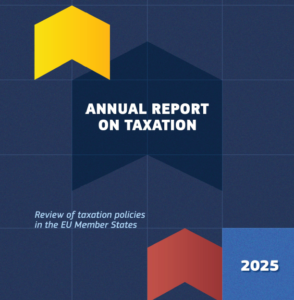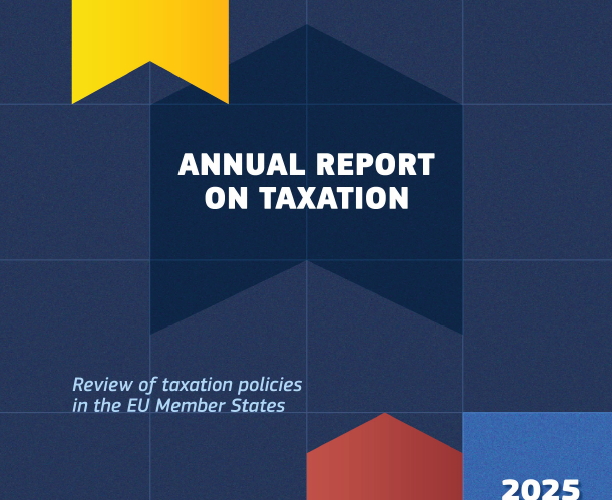- The 2025 Annual Report on Taxation (ART) provides a comprehensive overview of the taxation landscape within the European Union (EU) Member States, emphasizing the macroeconomic challenges that shape tax policy, including an ageing population, rising public debt, and changing economic dynamics. The report underlines the necessity for Member States to adapt their tax systems to ensure fiscal sustainability and support economic growth, particularly in the face of significant global uncertainties such as trade tensions and inflation.
- Key Challenges in the Tax Landscape: The report highlights the importance of measuring tax gaps—the difference between potential and actual tax revenues—across different tax types. This measurement is crucial for understanding fiscal needs, improving compliance, and ensuring that tax systems remain equitable and effective. The findings indicate that several Member States face high deficits and public debt ratios, necessitating a reevaluation of their tax structures and revenue sources.
- VAT and Customs Context: Within this broader context, the report addresses specific concerns related to VAT and customs. Notably, VAT revenue in the EU-27 has reached historic lows as a share of GDP, driven by a decline in consumption taxes and the diminishing role of environmental taxes. This decline points to a critical need for policymakers to rethink the tax mix to enhance revenue collection and ensure the sustainability of public finances.
- VAT Policy Gap: A significant focus of the ART is the VAT policy gap, which stems from the application of reduced rates, exemptions, and zero rates instead of a unified standard VAT rate. This policy gap results in substantial revenue losses, estimated to account for almost 50% of the notional ideal VAT revenue, which translates into approximately EUR 1,250 billion in potential tax revenue. Addressing this gap is essential for improving VAT compliance and maximizing revenue, as the current system has been identified as contributing to inefficiencies in tax collection.
- Digitalization and Compliance Improvements: The report emphasizes the role of digitalization in enhancing VAT compliance. Digital tools, such as e-filing and pre-filled tax returns, can significantly improve reporting accuracy and reduce compliance burdens. Furthermore, administrative cooperation among EU Member States is crucial for combating VAT fraud, particularly in cross-border transactions. Initiatives like the One Stop Shop and Eurofisc aim to improve data exchange and facilitate the identification of fraudulent activities, strengthening the overall integrity of VAT systems.
- Conclusion: The 2025 ART underscores the interconnectedness of macroeconomic factors, tax policy, and VAT compliance. As the EU navigates complex economic challenges, the need for resilient and adaptable tax systems becomes increasingly vital. By focusing on addressing the VAT policy gap, enhancing digitalization, and fostering cooperation among Member States, the EU can work towards achieving a more effective and equitable tax framework that supports economic growth and fiscal sustainability.
Source:
- European Commission: Directorate-General for Taxation and Customs Union, Annual report on taxation 2025 – Review of taxation policies in the EU Member States, Publications Office of the European Union, 2025, https://data.europa.eu/doi/10.2778/6367826
- Taxation-customs.ec.europa.eu
Other newsletters

Latest Posts in "European Union"
- MEPs Urge Simpler EU Tax Rules and Unified Tax ID to Boost Competitiveness
- European Parliament Debates Digital Services Tax Versus VAT Gap Solutions in Interparliamentary Meeting
- Applications Open for EU Member States to Host New EU Customs Authority
- ECHR: VAT Assessments in Italmoda Case Are Not Criminal Penalties Under Article 7 ECHR
- CFE Calls for Fundamental Reform of EU VAT Rules for Travel and Tourism Sector














